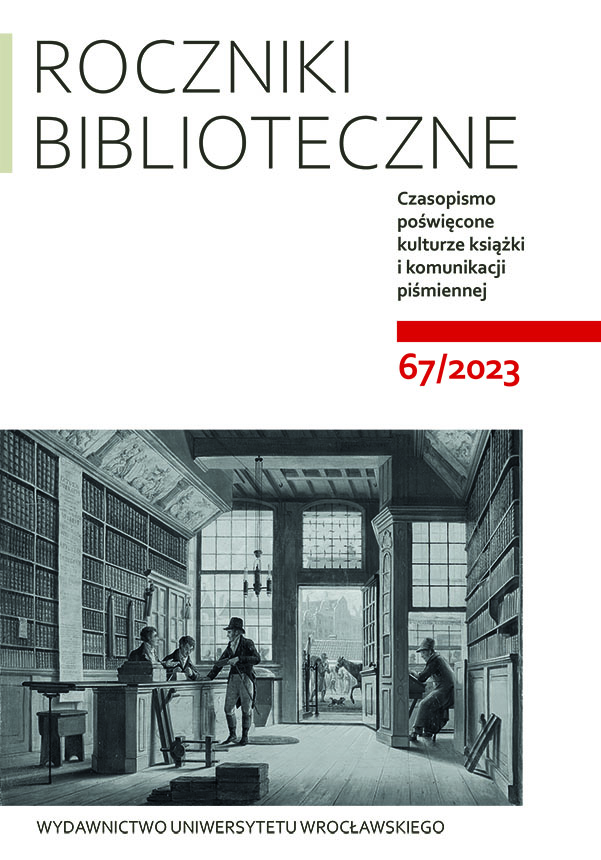

Artykuły i materiały

The aim of the paper is to picture a retrospective panorama of the theoretical legacy of post-war Polish book studies. Of key importance to the author is the question of the object of the discipline and, consequently, its scope. The author discusses directions in book studies and the bibliological process making up — starting in the 1930s and with Jan Muszkowski’s concept — the core tradition and foundation of book-studies theories: the theories built around the paradigm of ‘life of the book,’ looking at it as an integrally defined process of production, dissemination and consumption; Karol Glombiowski’s functional theory, thanks to which ‘systemic’ and ‘functional’ approaches became a commonly accepted methodological premise in book studies; the concepts formulated by Janusz Dunin, who linked the bibliological tradition of historical source studies of editorial forms of books to the functional theory and to ‘communication’ perspective; the theory formulated by Radoslaw Cybulski, who, in combining the established morphology of the book with a semiotic and communication perspective, adopted ‘book consumption,’ that is, an ‘integrated system of satisfying the needs of book users,’ as a functional category to describe the behaviour of participants in the book market; the concepts focused on the ‘social communication situation’ as a research concept and perspective stemming from the sociological and semiotic reorientation of humanistic thinking. At the end, the author discusses the trends which have considerably expanded research perspectives in recent years: books in the media space; the ‘culture of the book’ paradigm, which is conducive to an ‘anthropologisation’ of the bibliological process, perceived no longer only institutionally, from the perspective of social communication, but also through relations, interactions and value judgements of people participating in it, which shifts research priorities towards the questions of reading and often also towards ‘regional’ approaches; and the theory of book art and research into book aesthetics. At the various stages of the development of bibliology and in relation to respective research approaches, the focus shifted from the book as a cultural artefact and its ‘life,’ that is, the bibliological process with its institutions, to the functions of the book with regard to the public in the process of social and cultural transmission, and, finally, to the public as the creator and user of the culture of the book, whose actions are ‘recorded’ in bibliological documentation.